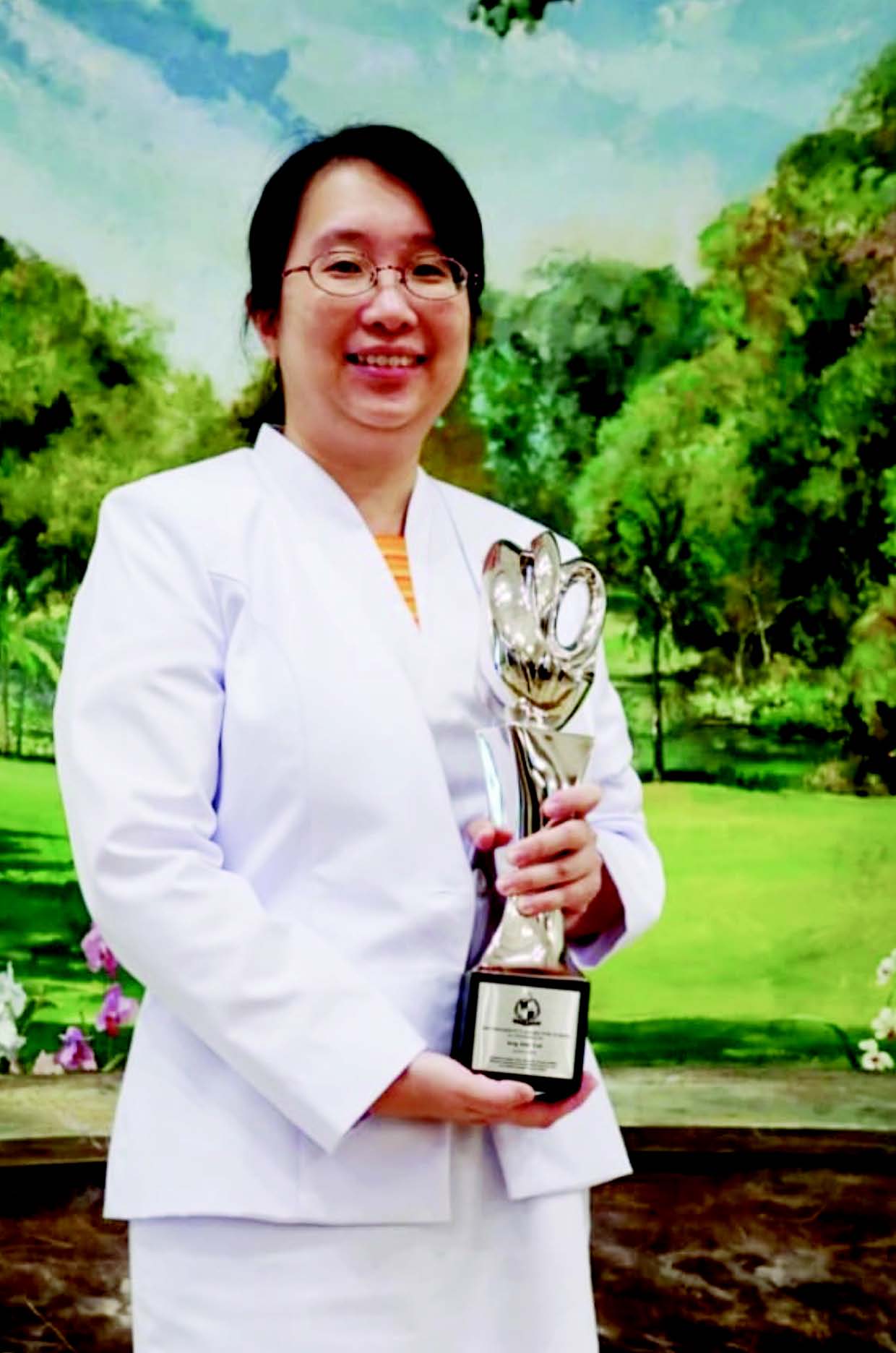
From part-time hawker helper to President’s Nursing Award laureate, Ang Shin Yuh is shaping the future of healthcare, one process at a time.
Ms Ang Shin Yuh spent much of her youth helping her mother sell yong tau foo at a school canteen. Business was relatively quiet except for the short recess period when the stall was very busy. The challenge facing her mother was how to serve as many students as possible without compromising the quality of her food.
Crucial for hawkers like her mother was streamlining the stall’s processes, such as displaying the items available for order, queueing and ordering, cooking and serving, and payment.
Little did she know at the time that learning the ropes from her mother would prove to be an important lesson for her today. As Deputy Director, Nursing Quality Research & Transformation, Singapore General Hospital (SGH), Ms Ang oversees quality, research and transformation in healthcare.
“The main issues we face in healthcare are: how do we continue to improve the quality of care and experience, without making undue demands on resources such as manpower, technology and expenses?” said Ms Ang.
“It is very hard to strike a balance. What is quality care? How is it defined? What is a good experience? All these will evolve. The demand and type of experience people want will evolve. Healthcare will have to evolve as well. Our target keeps shifting.”
One aspect of her work is working with colleagues and other people to enhance efficiency by improving hospital processes. Recently, one of her projects was introduced to patients at SGH wards — an app that lets patients post queries to their care team, and access their daily schedules, test results and education materials. This project has been so successful that it will be implemented in other SingHealth institutions.
 The bubbly 40-year-old — one of this year’s President’s Nursing Award winners, the highest honour in Singapore for nursing — studied nursing at King’s College London. She had turned down an offer to study medicine locally, opting for the nursing scholarship instead because she wanted “to go and see the world”.
The bubbly 40-year-old — one of this year’s President’s Nursing Award winners, the highest honour in Singapore for nursing — studied nursing at King’s College London. She had turned down an offer to study medicine locally, opting for the nursing scholarship instead because she wanted “to go and see the world”.
“As a very timid, quiet little girl, I was thrown into an environment where I had to survive on my own for four years,” she said, adding that she became very outspoken and independent to survive in an unfamiliar environment.
She sees herself belonging to “a generation of transition” — born in 1979 when technology was in its infancy, and growing up amid dramatic technological changes. Straddling these two worlds, she feels she is well poised to drive the sort of changes in healthcare that she as an older person would want to see.
“In the next 30 years, I will be 70. I will be the one who needs healthcare. It is about building a healthcare system — the kind that I would want — for my generation,” said Ms Ang.
Get the Health Buddy App
© 2025 SingHealth Group. All Rights Reserved.













 Get it on Google Play
Get it on Google Play